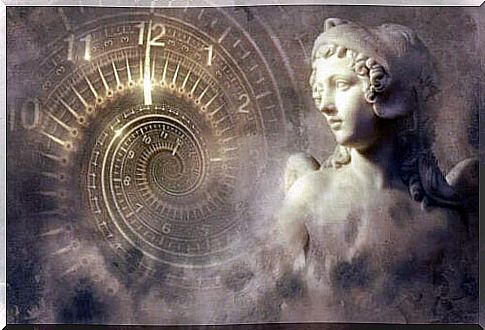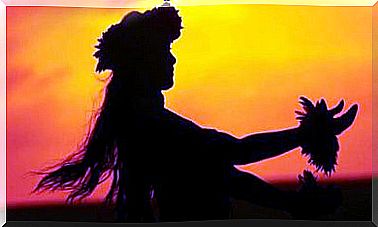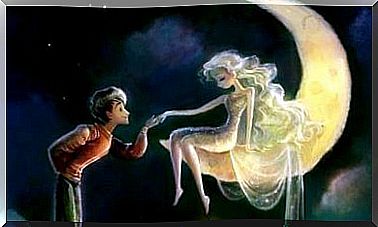Aporie: The Wisdom Of Contradiction

The term aporie comes from the Greek. It could be defined as a state of uncertainty or confusion that arises when we grapple with two opposing, yet acceptable, arguments. Examples of this are William Shakespeare’s famous saying “to be or not to be” or the classic question “which came first, the chicken or the egg?”. These unsolvable questions relate to philosophical dilemmas for which there is no solution.
However, in the times of Plato and Socrates, this way of thinking was a great way to start debates and deep dialectical exercises. The key was to cast doubt or raise a rhetorical question. In this way they wanted to achieve a transition between the ambiguity of the world, the contradictions of life and the complicated considerations that have both meaning and no meaning at the same time.
If there is one thing we must start from, it is the fact that the reality that surrounds us is full of unbearable aporias. Here is an example of such an aporia . There is no doubt that we are an incredibly individualistic and globalized society. All people are free. At the same time, however, we are victims of a thousand circumstances and infinite mechanisms that shape and standardize us.
An aporia is the wisdom of contradiction. It invites us to make valuable considerations that don’t really make sense in the end.
What is an aporia and what is its purpose and purpose?
In any case, when we talk about aporias, we must also quote the sophisms of the Greek philosopher Zeno of Kition. One of them is known as “The Paradox of Achilles and the Tortoise”. The essence of this idea rests on an argument: a movement as such does not really exist. The stoic sage understood mobility as a chain of states of rest (as the sum of still images).
Therefore, for Zenon, a turtle could be as fast or even faster than Achilles (who was known for his speed), because movement, like time, is only an illusion. Based on this premise, he explained that an arrow shot does not actually move at any point in time. Instead, its movement is the result of the infinite sum of its rest points. What can one reply to such an argument? Well, if you rely on the classical mechanisms and Newton’s laws, you can completely refute them.
But if you put yourself in Zeno’s way of thinking about the sequence of states of rest, you can certainly understand them too. If you can follow these examples, you will also see that we are all familiar with the feeling of aporia.
Think about it for a moment. This term describes the confusion or uncertainty you sometimes experience when grappling with two conflicting ideas, both of which can be interesting and valid. It’s a knot of confusion that makes you pause for thought, even though it’s not really critical.

Deconstructing to Discover: The Value of Everyday Contradiction
Aporetical is an interesting adjective to keep in mind. In fact, it would be very good to acquire this trait and practice this practice of thinking and reflecting, with which you can deconstruct many realities to find out that there are other possibilities and perspectives.
In the aporia, to deconstruct means two things. For one, to allow yourself to discover the contradiction behind everything that surrounds you. On the other hand, to accept that there are ideas every day that are essentially opposing, but which you can still accept. In addition, it is possible to learn from any of these approaches, even if they are incompatible. Ultimately, the most important goal is nothing more than to create confusion, to think about the opposite, and to accept it as another aspect of life.
Types of aporias
Nowadays the term aporia is often used as a synonym for difficulty. In this case he represents a dead end, a challenge with no obvious rational solution. In Greek philosophy, on the other hand, an aporia was more of a riddle, an exercise that encouraged dialogue, the exchange of ideas, theories, and approaches to knowledge.
However, you shouldn’t think of an aporia as a pointless Gordian knot. On the contrary, this state of uncertainty promotes analytical thinking. It is therefore important that you understand the two existing typologies.
Argument aporia: part of a doubt
The starting point of this kind of aporia is always a question that is raised. It is often used to make others think about it, although it is already known that there is no clear answer to it. The goal is nothing more than encouraging ideas and reasoning.
Interestingly, most aporias always start with questions. “Which came first, the chicken or the egg?”, “Can we always believe what our eyes see or do we see things through our personal interpretations and evaluations?”, “Was the color orange named after the fruit or otherwise hereabouts?”
Tonal aporia: part of an opinion
In this case one does not seek dialogue, but wants to impose the truth. It is like limiting yourself to pointing out that “the hen before the egg” was there. The thought still provokes a contradiction, but the sentence has a certain tone and tries to convince the other of a prejudice.
In all cases, the most appropriate aporia would be the one that starts from a question. This is the only way to encourage dialogue and reflection.
In conclusion, it can be said that there is an indisputable fact beyond the classical metaphors that Plato and Aristotle used with their students through rhetorical questions. In our world today , people like to spread multiple aporias. Politics, society and the world of advertising etc. do not cease to confuse the public with their multiple paradoxes.
It is true that we cannot really solve anything from our position. The contradiction is sometimes continuous: you can understand all positions and still be caught in perplexity. Recognizing, accepting and reflecting on these antagonistic universes can enrich what you already know as the wisdom of contradiction.









